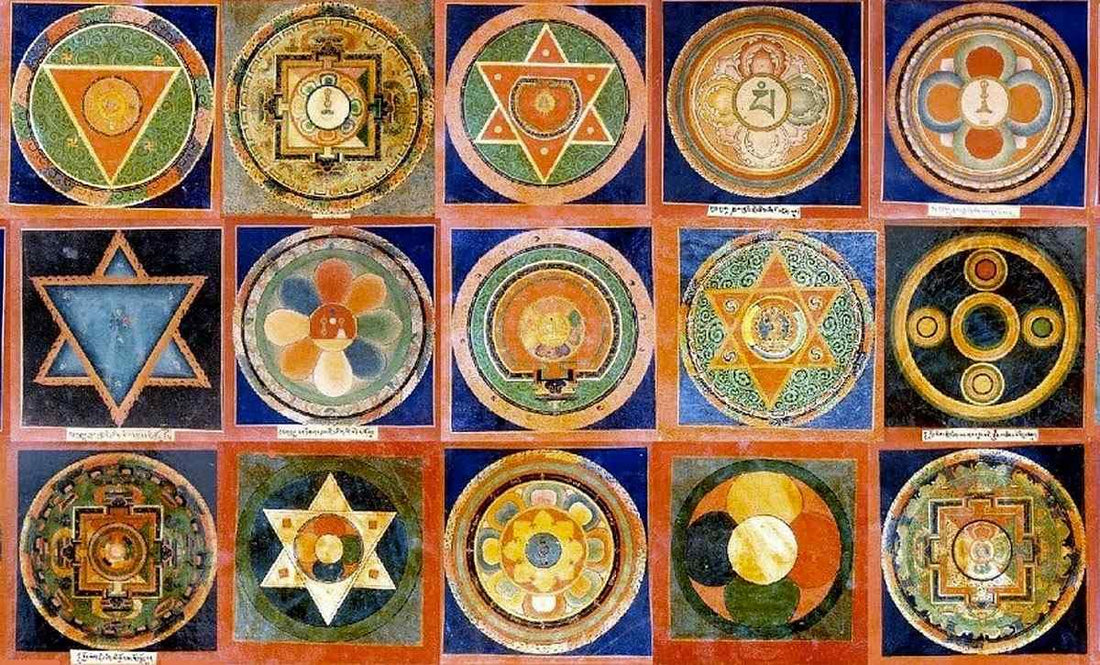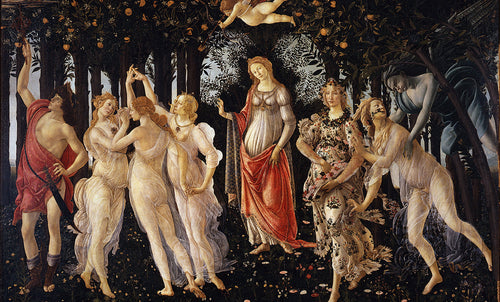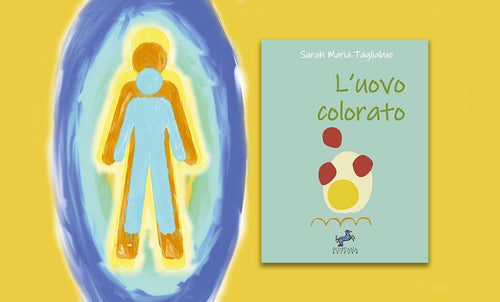
The Longlife Attainment in Tibetan Buddhism 2
Leonardo AnfolsiThe Icy dew of the Mountain goddess - An alchemical poem by the VI Dalai Lama and the hidden treasure of Alexius Von Ruesenstein.
The poem of the VI Dalai Lama:
You will never be reborn in hell if you drink
With pure motivation the distilled elixir
From the snows of the sacred “Crystal Mountain”
And from the dew of the magic herb
“Thunderbolt of the Demon-Serpent”
Offered by Vinaya, the Goddess of Gnosis[1]
This poem has three levels of decoding, thus resembling a typical Western alchemical-hermetic text, and not only for that reason. Let’s proceed one step at a time:
The first level of decoding is about the teaching of the Dharma:
the pure motivation is not merely a “moral” concept: it is Bodhicitta, The Enlightened Mind and thus also the state of Rigpa (Tibetan term for The Primordial State) and Rangrig (Tibetan term for the Uncontrived Acknowledgment of that State), which in Mahayana they could also consider the Light-Mother-of-The-Mind towards the Light-Son-of-our-mind. The meaning refers to Enlightenment realized in every day life, drinking at once the pure vision of the sacred Crystal[2] and transmuting the energy of the fierce thunderbolt that comes, however, from our Mother Gnosis, who manifests herself through the commitment (Samaya) related to the specific level attained in the spiritual practice of Dharma.
The second level of decoding covers the erotic symbolism present in the tantric vision:
we know that the sixth Dalai Lama, Tsangyang Gyatso, gave back his monastic vows; he wanted to live as a lay person, loving his visits to brothels and taverns, enjoying the music and poetry. The liquids, on this symbolic level, are the sexual ones that are accepted as pure Dharma gifts, if consumed with pure motivation, in the observance of one’s vows and rules (Vinaya) as well as related to the silent and supreme motivation of the Gnosis.
Finally the alchemical keys of certain processes are prompted:
the dew is considered one of the main accesses to the Prima Materia. In fact, the magic herb would be collected still full of dewy humors in the practice of herbal spagyrics, or, conversely, is the grass that produces in some processes the putrefaction/fermentation of the dew; in a German Rosicrucian Treaty, is suggested the use of the horseradish[3]. Like the dew, in a similar way, the snow can be used, when appositely prepared. Well, all these alchemical processes can be found in the Ruesenstein book (Leipzig 1884)[4], that is what the Tibetans would call a “terma”, a Treasure of the Gnosis , something hidden and deeply buried until discovered by someone deserving; something that, at the right time, promptly happens, in the wall of a castle, in this case.

Idealized protrait of the VI Dalai Lama in monk robes: hands and feet with the wheel countersign of a Samboghakaya Buddha are shown as a blessing, at the top the Yoghin Milarepa, the most renowned tibetan poet. Standing by the side, the Bodhisattvas Samathabadra and Vajrapani. Below are the two Buddha’s disciples Subuthi and Ananda offering symbolic objects.
(From Nitrogeno #2)
[1] This poem has been translated from the Tibetan language by Giacomella Orofino, whom I asked for the permission to publish it; she explained me the meaning of words such as “distilled elixir”, “dew” or “magic herb” giving me the certainty that they had, in that context, a precise and wanted alchemical meaning.
[2] See: The Crystal and the Way of Light, Chogyall Namkhai Norbu, edited by John Shane, 1999.
[3] Thesaurus Thesaurorum à Fraternitate Rosae et Aurae Crucis Testamento Consignatus etc. 1580.
[4] RAMS Digital Library www.ramsdigital.com
















































